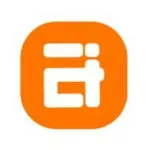
Top Healthcare Software Development Companies
Welcome to our comprehensive guide to the top Healthcare Software Development Companies! In today’s rapidly evolving healthcare landscape, technology plays a pivotal role in improving patient care, streamlining operations, and enhancing efficiency. Our curated list features the leading companies specializing in developing innovative software solutions tailored specifically for the healthcare industry. From electronic health record (EHR) systems and practice management software to telemedicine platforms and medical imaging solutions, these companies offer a diverse range of products and services to meet the unique needs of healthcare providers and organizations. With detailed reviews and insights, we empower you to make informed decisions and choose the best partner for your healthcare software needs.
List of the Best Healthcare Software Development Companies

-
Employees: 101 to 250
-
Min. Project amount: $5,000+
-
Country: Bhubaneswar, India
-
Employees: 101 to 250
-
Min. Project amount: $5,000+
-
Country: Highland, California

Quickway Infosystems
-
Employees: 11 to 50
-
Min. Project amount: $1,000+
-
Country: Noida, India
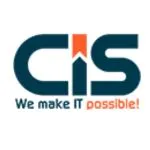
CISIN
-
Employees: 1,000 to 9,999
-
Min. Project amount: $5,000+
-
Country: Delaware, USA
-
Employees: 51 to 100
-
Min. Project amount: $1,000+
-
Country: Madhyapur Thimi, Nepal
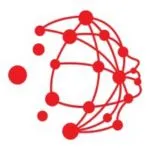
TechnBrains
-
Employees: 251 to 500
-
Min. Project amount: $25,000+
-
Country: Grapevine, TX

Idea2App
-
Employees: 501 to 1000
-
Min. Project amount: $1,000+
-
Country: Indore, India
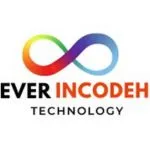
Everincodeh Technology
-
Employees: 11 to 50
-
Min. Project amount: $1,000+
-
Country: Indore, India

Aegis Softtech
-
Employees: 50 to 100
-
Min. Project amount: Undisclosed
-
Country: Rajkot, India
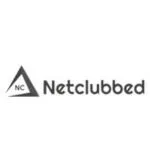
Netclubbed
-
Employees: 0 to 10
-
Min. Project amount: $1,000+
-
Country: Noida, India
** Buyer's Guide **
- 1. What types of healthcare software solutions do these companies offer?
- 2. Can healthcare software solutions be customized to meet the specific needs of my healthcare practice or organization?
- 3. How user-friendly are the healthcare software solutions for healthcare professionals and patients?
- 4. Can healthcare software solutions integrate with existing systems and third-party applications used by my healthcare practice or organization?
1.What types of healthcare software solutions do these companies offer?
Top healthcare software development companies offer a variety of solutions tailored to the healthcare industry, including electronic health record (EHR) systems, practice management software, telemedicine platforms, medical billing and coding software, medical imaging solutions, and patient engagement applications.
Healthcare software development companies offer a diverse range of solutions designed to address the specific needs and challenges faced by various players in the medical field. Here’s a breakdown of some of the most common healthcare software solutions:
Streamlining the Medical Journey: Key Healthcare Software Solutions
Technology plays a vital role in modern healthcare, and these software solutions empower medical professionals, institutions, and patients alike:
Electronic Health Record (EHR) Systems: EHRs serve as the backbone of modern medical recordkeeping. They allow healthcare providers to store, access, and manage patient medical histories electronically. This fosters improved care coordination, better treatment decisions, and easier information sharing between authorized providers.
Practice Management Software: Streamline administrative tasks within hospitals, clinics, and private practices with practice management software. These solutions handle tasks like appointment scheduling, patient billing and insurance management, electronic health record management, and communication with patients.
Telemedicine Platforms: Facilitate remote healthcare consultations with telemedicine platforms. Patients can connect with doctors virtually for consultations, follow-up appointments, or specialist referrals, improving access to care and reducing geographical barriers.
Medical Billing and Coding Software: Ensure accurate and efficient medical billing with specialized software. These solutions assist in coding diagnoses and procedures according to standard medical classification systems, streamlining the insurance reimbursement process and reducing claim denials.
Medical Imaging Solutions: Imaging software allows radiologists and other specialists to view, analyze, and interpret medical images (X-rays, MRIs, CT scans) efficiently. These solutions can also facilitate secure storage and transmission of medical images.
Patient Engagement Applications: Empower patients to take an active role in their health with patient engagement apps. These applications offer features like appointment reminders, medication management tools, secure communication with doctors, and access to educational health resources.
Hospital Management Systems: These comprehensive software solutions manage various aspects of hospital operations, encompassing patient care, administrative functions, financial management, and resource allocation.
Pharmacy Management Systems: Maintain efficient medication management within pharmacies with specialized software. Features include prescription processing, inventory control, medication adherence tools, and patient medication education resources.
In addition to these core solutions, many companies offer niche solutions catering to specific healthcare specialties or needs, such as:
- Dental Practice Management Software
- Laboratory Information Management Systems (LIMS)
- Mental Health Software
- Population Health Management Software
The specific solutions you’ll need depend on your area of focus within the healthcare industry. A skilled software development company can help you identify the right solutions to optimize your workflows, enhance patient care, and achieve your healthcare organization’s goals.
When choosing a healthcare software development company, consider factors like their experience in the healthcare industry, their compliance with HIPAA (Health Insurance Portability and Accountability Act) regulations, and their ability to deliver secure and user-friendly solutions. By selecting the right partner, you can leverage the power of healthcare software to improve efficiency, enhance patient care, and navigate the ever-evolving healthcare landscape.
2.Can healthcare software solutions be customized to meet the specific needs of my healthcare practice or organization?
Yes, reputable healthcare software development companies understand that each healthcare practice or organization has unique requirements. They typically offer customizable solutions that can be tailored to align with specific workflows, specialties, and requirements.
Reputable healthcare software development companies recognize the importance of customization within the diverse landscape of the medical field. They provide solutions that can be meticulously tailored to match the specific needs, workflows, and specialties of your healthcare practice or organization. Here’s how customization comes into play:
Tailored Care: Customizing Healthcare Software for Your Needs
One-size-fits-all approaches rarely work well in healthcare. Leading healthcare software development companies understand this and offer customizable solutions to perfectly align with your unique environment:
Specialty-Specific Features: Many core solutions, like EHR systems or practice management software, offer customization options to cater to specific medical specialties. For instance, a cardiology practice might require functionalities for managing EKG results, while a pediatric clinic might prioritize features for growth tracking and immunization records.
Workflow Integration: The software should seamlessly integrate with your existing workflows. Look for companies that allow customization of features, reports, and dashboards to match how your practice or organization typically operates.
Scalability and User Access Controls: Your software needs should adapt as your practice grows. Opt for customizable solutions that can be scaled up or down based on your patient volume and user needs. Granular user access controls ensure that different staff members (doctors, nurses, administrative personnel) have access to the functionalities relevant to their roles.
Compliance Considerations: The software should be customizable to adhere to relevant healthcare regulations and data privacy standards, such as HIPAA compliance in the US. Look for companies that offer solutions that can be configured to meet your specific compliance requirements.
Integration with Existing Systems: Customization extends to integrating the software with your existing healthcare IT infrastructure. This might include EHR systems, billing software, or laboratory information systems. Reputable companies will ensure seamless data exchange between your new software solution and your existing systems.
Benefits of Customization:
Optimized Workflows: A tailored solution streamlines workflows, improves efficiency, and allows your staff to focus on patient care rather than wrestling with clunky software.
Enhanced Patient Care: Customization empowers you to deliver care that aligns with your specific practice philosophy and patient population.
Improved User Adoption: Staff members are more likely to embrace software that is intuitive and caters to their specific needs within your practice.
Reduced Costs: Customization helps avoid paying for unnecessary features and ensures you get the functionalities that deliver the most value for your investment.
Finding the Perfect Fit:
Discuss Customization Needs: When evaluating healthcare software development companies, clearly communicate your specific needs, practice specialty, and desired functionalities. Discuss your customization requirements to ensure the company can tailor the solution to your unique environment.
Request Feature Demonstrations: Reputable companies will showcase how their software can be customized to meet your needs. Look for demos that highlight features relevant to your specialty and workflow.
Industry Experience and Client Testimonials: Review case studies showcasing how the company has developed customized solutions for healthcare practices or organizations similar to yours. Client testimonials can offer valuable insights into the customization process and the overall client experience.
By partnering with a company that prioritizes customization, you can ensure your healthcare software solution seamlessly integrates with your existing infrastructure, optimizes your workflows, and empowers you to deliver exceptional patient care within the specific context of your practice or organization.
3.How user-friendly are the healthcare software solutions for healthcare professionals and patients?
The best healthcare software solutions are designed to be intuitive and user-friendly, with interfaces that are easy to navigate for healthcare professionals and patients alike. Look for companies that prioritize usability and provide comprehensive training and support resources.
User-friendliness is paramount for healthcare software solutions, catering to both healthcare professionals with varying technical backgrounds and patients who might not be familiar with complex medical software. Here’s how leading developers ensure their solutions are user-friendly for everyone involved:
Bridging the Tech Gap: Making Healthcare Software Easy for All Users
Effective healthcare software empowers both healthcare professionals and patients to leverage its functionalities without getting bogged down by complex interfaces. Here’s what to look for:
Intuitive Interface Design: Clean and user-friendly interfaces are key. Menus, buttons, and functionalities should be logically organized and easy to understand for users with varying technical skills.
- Healthcare Professionals: EHR interfaces should be clear and concise, displaying patient data and medical records in a straightforward manner. Features for diagnostics, treatment plans, and progress notes should be readily accessible and intuitive to use.
- Patients: For patient portals or mobile apps for appointment scheduling, medication management, or telemedicine consultations, the interfaces should be user-friendly and minimize distractions. Clear instructions and intuitive navigation are essential.
Role-Based User Interfaces: The software should present users with interfaces tailored to their specific roles. Healthcare professionals might see functionalities for diagnoses, medications, and treatment plans, while patients might see appointment scheduling, lab results, and secure messaging features.
Minimal Training Requirements: Ideally, the software should be intuitive enough to learn quickly with minimal training. Look for solutions that offer clear in-app tutorials and readily available user guides to guide users through key functionalities.
Context-Sensitive Help: Software solutions can provide context-sensitive help features that offer relevant guidance and tutorials based on the specific task a user is trying to accomplish.
Multiple Support Options: Comprehensive training and support resources are essential. Look for companies that offer multiple support channels (phone, email, online chat) to address user queries and troubleshoot any issues promptly.
Enhancing the User Experience:
Patient Education Materials: Patient portals can integrate with educational resources about medical conditions, medications, and healthy living practices. This empowers patients to take a more active role in their health management.
Telemedicine Ease-of-Use: Telemedicine platforms should be user-friendly for both patients and healthcare professionals. Platforms should be accessible through web browsers or mobile apps without requiring complex downloads or installations.
Data Visualization Tools: Healthcare professionals can benefit from data visualization tools that present complex medical data in an easy-to-understand format (charts, graphs). This can improve clinical decision-making and patient communication.
Mobile Accessibility: Many healthcare professionals and patients access information on the go. Look for software solutions with mobile-friendly versions or dedicated mobile apps that offer core functionalities in a convenient format.
Benefits of User-Friendly Healthcare Software:
Increased User Adoption: Easy-to-use software ensures higher adoption rates among healthcare professionals and patients, maximizing the software’s value.
Improved Efficiency: Intuitive interfaces and streamlined workflows empower users to complete tasks quickly and efficiently, saving time and reducing errors.
Enhanced Patient Engagement: User-friendly patient portals and mobile apps empower patients to actively participate in their healthcare journey, improving communication with providers and medication adherence.
Improved Quality of Care: Healthcare professionals with user-friendly EHR systems can access patient data efficiently, leading to more informed clinical decisions and potentially improving patient outcomes.
Finding the Perfect Fit:
Request Demos and Free Trials: Many companies offer free trials or demo sessions to allow you to experience the software firsthand and assess its user-friendliness for yourself (healthcare professionals) or for your target patient population.
User Reviews and Ratings: Read online reviews and ratings to gain insights from existing users about the software’s ease of use and any user interface challenges they encountered, specifically focusing on experiences of healthcare professionals or patients, depending on your needs.
By prioritizing user-friendly design, comprehensive training, and ongoing support, leading healthcare software development companies ensure their solutions empower both healthcare professionals and patients to leverage the software’s functionalities effectively, streamline processes, and ultimately enhance the overall experience within the healthcare industry.
4.Can healthcare software solutions integrate with existing systems and third-party applications used by my healthcare practice or organization?
Yes, top healthcare software development companies offer solutions that are designed to integrate seamlessly with existing systems and third-party applications, such as electronic medical records (EMR) systems, laboratory information systems, and billing software. Integration capabilities ensure smooth data exchange and interoperability.
Integration is a cornerstone of modern healthcare software solutions. Here’s how these solutions connect seamlessly with the technological ecosystem of your healthcare practice or organization:
Building Bridges for Better Care: Streamlining Operations with Integrations
No healthcare practice or organization operates in isolation. Leading healthcare software development companies understand this and design their solutions to integrate harmoniously with your existing systems and third-party applications:
Electronic Medical Records (EMR) Systems: Ensure your new software integrates seamlessly with your existing EMR system. This eliminates the need for duplicate data entry and ensures a holistic view of patient data across all your platforms.
Laboratory Information Systems (LIS): For practices or hospitals that rely on laboratory testing, integrate your software with your LIS. This allows for automated exchange of lab orders, test results, and eliminates the need for manual data entry, improving efficiency and reducing errors.
Billing and Coding Software: Streamline medical billing and coding with integrations between your new software solution and your existing billing software. This ensures accurate coding, faster claims processing, and reduces the risk of claim denials.
Pharmacy Management Systems: If your practice dispenses medications, integrate your software with your pharmacy management system. This allows for real-time medication inventory checks, electronic prescribing, and improved medication adherence tracking for patients.
Imaging Software: For specialists or radiology departments, integrate your software with imaging software used for X-rays, MRIs, or CT scans. This facilitates secure storage, transmission, and analysis of medical images within your healthcare ecosystem.
Appointment Scheduling Tools: Many practices utilize online appointment scheduling tools. Ensure integration to allow patients to schedule appointments directly through your patient portal or website, improving convenience and reducing administrative burden on your staff.
Telemedicine Platforms: If you plan to incorporate telemedicine consultations, ensure your chosen software integrates seamlessly with your preferred telemedicine platform. This streamlines virtual appointments and data exchange between you and your patients.
Benefits of Seamless Integration:
Automated Workflows: Automate data exchange between your various systems, eliminating manual data entry and reducing processing times.
Improved Efficiency: Integrated solutions foster smoother information flow, optimizing operational efficiency and boosting productivity within your practice.
Enhanced Data Accuracy: Seamless integrations ensure data accuracy and consistency across all your platforms, minimizing errors and discrepancies in patient records.
Reduced Administrative Burden: Integrations streamline administrative tasks like appointment scheduling, billing, and coding, freeing up your staff to focus on patient care.
Improved Patient Care: Real-time access to comprehensive patient data through integrations empowers healthcare providers to deliver more informed and coordinated care.
Finding the Right Integration Fit:
Evaluate API Capabilities: When evaluating healthcare software development companies, inquire about their API integration capabilities. Ensure they offer open APIs that can connect with the specific systems and applications you utilize in your practice or organization.
Discuss Integration Needs: Clearly communicate your integration requirements to potential software vendors. This allows them to assess your needs and propose solutions that ensure seamless interoperability with your existing infrastructure.
By prioritizing integration capabilities, you can ensure that your new healthcare software solution integrates seamlessly with your existing systems and third-party applications. This fosters a unified technological ecosystem that streamlines operations, enhances patient care delivery, and empowers your healthcare practice or organization to function more efficiently within the complex healthcare landscape.


